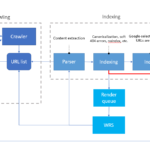How Stress Delays Fat Loss: Understanding the Impact of Stress on Weight Loss
By Dipanjalee Deb, Coach, Swasthaham
Stress is an inevitable part of life, but did you know that it can significantly delay your fat loss journey? Let’s dive into the science of how stress affects your body and makes fat loss more challenging, and what you can do to manage it.
Hormonal Imbalances
Cortisol: The Stress Hormone
When you’re stressed, your body releases cortisol, a hormone that can have a direct impact on fat storage.
– Increased Fat Storage:
Chronic stress elevates cortisol levels, which promotes fat storage, particularly around the abdominal area. Cortisol increases both the size and number of fat cells, making fat loss more difficult, especially in stubborn areas like the belly.
– Muscle Breakdown:
High cortisol levels can also lead to muscle breakdown. This is problematic because muscle mass is key to a higher metabolic rate. Less muscle means fewer calories burned at rest, slowing down fat loss.
Insulin Resistance: A Barrier to Fat Loss
Stress can also trigger insulin resistance, a condition where your body’s cells don’t respond properly to insulin.
– Blood Sugar Levels:
When cells become insulin resistant, blood sugar levels rise, leading to increased fat storage as the body becomes more efficient at converting glucose into fat instead of using it for energy.
– Fat Storage:
Insulin resistance makes fat loss harder because your body prioritizes storing fat rather than burning it for energy.
Emotional and Mindless Eating
-Increased Caloric Intake:
Stress often leads to emotional eating, where we turn to high-calorie, sugary, and fatty “comfort foods.” This can easily lead to consuming more calories than needed, sabotaging fat loss goals.
Disrupted Eating Patterns:
Stress can disrupt regular eating patterns, leading to mindless snacking and overeating. This inconsistency can make it hard to follow a structured, calorie-controlled diet plan.
Lack of Motivation and Inactivity
Reduced Exercise:
Chronic stress drains your motivation to exercise. Whether it’s due to mental fatigue or a packed schedule, stress can lead to reduced physical activity, which lowers your overall calorie burn and further delays fat loss.
Poor Sleep Quality
Stress is a major contributor to poor sleep quality, and sleep is vital for weight management.
– Hormonal Imbalances:
Sleep deprivation increases cortisol levels, ghrelin (the hunger hormone), and decreases leptin (the hormone that suppresses appetite). This combination leads to increased hunger and cravings, especially for high-calorie foods.
– Metabolic Slowdown:
Poor sleep also slows down metabolism, making it harder to maintain the caloric deficit required for fat loss.
Metabolic Rate and Fat Distribution
Slowed Metabolism:
Chronic stress can reduce your metabolic rate, making it harder to burn calories efficiently.
Increased Abdominal Fat:
Stress often leads to an increase in abdominal fat, which is more resistant to loss compared to other fat types. This stubborn fat can be particularly frustrating for those aiming for fat loss.
Coping Strategies to Combat Stress-Induced Fat Loss
Here are some effective strategies to reduce stress and support your fat loss journey:
1. Mindfulness and Meditation:
Practices like mindfulness meditation can significantly reduce stress and improve mental well-being. Taking just 10 minutes a day to meditate can lower cortisol levels.
2. Deep Breathing Exercises:
Incorporating deep breathing exercises activates the body’s relaxation response, helping to combat the effects of stress and lower cortisol levels.
3. Regular Physical Activity:
Exercise is one of the best stress relievers. Engaging in activities such as yoga, walking, or strength training not only manages stress but also aids fat loss.
4. Adequate Sleep:
Prioritize good sleep hygiene by establishing a consistent sleep routine. Aim for 7-9 hours of quality sleep each night to help regulate hormones and metabolism.
5. Healthy Eating Habits:
– Balanced Diet:
A diet rich in whole foods—fruits, vegetables, lean proteins, and whole grains—can stabilize blood sugar levels and reduce stress-induced cravings.
–Hydration:
Staying hydrated supports overall bodily functions and helps regulate appetite.
Conclusion
Managing stress through these strategies is essential for successful fat loss. If stress is a major barrier to your goals, consider seeking professional help from a counselor or psychologist to develop effective coping mechanisms.
About the Author :
Dipanjalee Deb is a fitness consultant who creates personalized wellness plans, focusing on sustainable fitness and nutrition strategies to help individuals achieve their health goals and improve their overall well-being.









